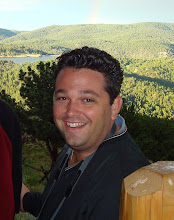
Towards an OLDER Paradigm
You can hear a great deal of discussion about the ancient/future church these days. Loren Mead wrote The Once and Future Church over a decade and a half ago and it is still a fixture on the bookshelves of many pastors.[1] Many assert that our current USAmerican cultural conditions more closely approximate a pre-Christian cultural milieu than at any other point in history.[2] They go on to assert that in the church’s 2000-year history there has never been a time more filled with opportunity for the spread of the gospel. I do not know how you can ascertain the veracity of this statement. What I do know is this: the Constantinianization of the Church appears to be eroding. Our secular culture is increasingly hostile to the Church and her witness and story, and often shockingly ignorant of it. Cultural wars over prayer in schools and the display of the Ten Commandments in state courthouses demonstrate the cultural/religious differentiation that is spreading across our land. So while there are those who are decrying the slow erosion of the Church’s privileged status in the culture, the reality is that the Church is reclaiming its ability to be a contrast society once again. This is not a bad thing. For the Church, this is a differentiation that brings life.
There is danger and opportunity in this differentiation. On the one hand, we have the opportunity to apprehend and own the good news once again in such a way that the message and saving story of our faith are no longer subverted for the purposes and aims of the state. However, we might have also so sold our soul to a position of power and preference that as the culture’s need for the cultural chaplaincy services of the Church erodes, so will the very institutional body of the Church.
[1] Loren B. Mead, The Once and
[2] Such assertions are made by thinkers and authors such as Rick Barger, Len Sweet, Bill Easum, Loren Mead, Brian McLaren, Tony Jones, and Diana Butler Bass. There are certainly others as well.

No comments:
Post a Comment